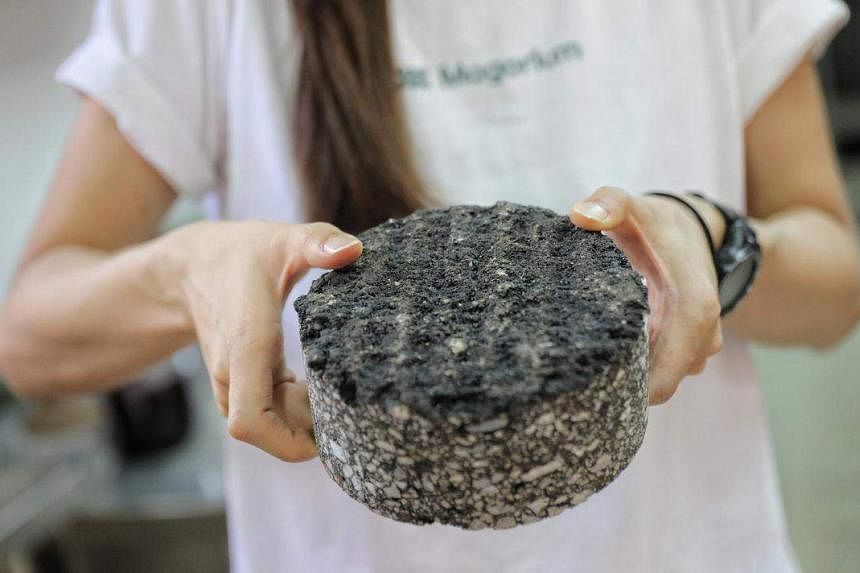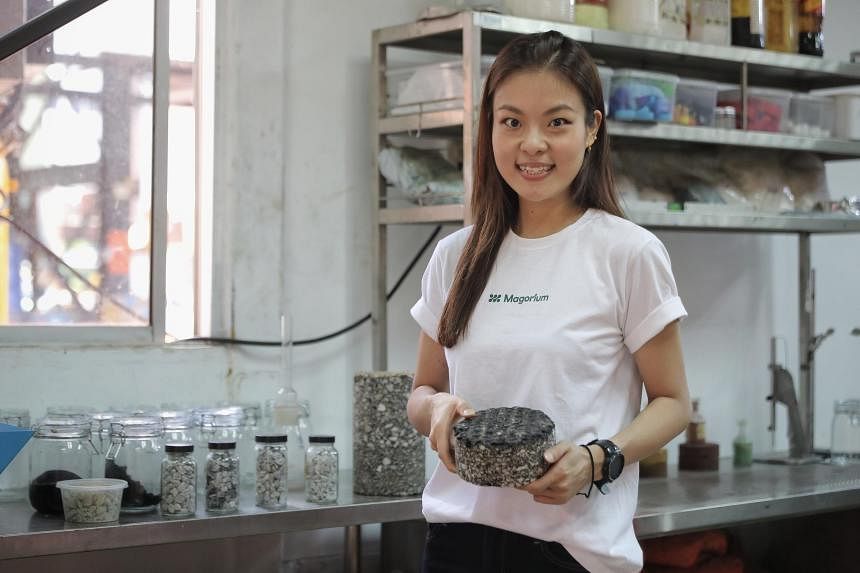SINGAPORE – Home-grown deep tech start-up Magorium, which turns plastic waste into road construction material, is targeting to raise at least $6 million in seed funding by early 2023, as it scales up its technology to boost its market presence.
It is in talks with potential investors and said this funding is likely to last the company for about one to two years. It also plans to grow its headcount from five currently to 40 by 2025.
Founded in 2019 by Ms Oh Chu Xian, 29, Magorium’s technology converts plastic waste into an innovative material called NEWBitumen that is used to build roads. It is in the midst of patenting its technology.
Traditional roads are built using bitumen, a sticky, black, highly viscous liquid produced from the distillation of crude oil. Globally, about one billion tonnes of crude oil is refined into bitumen to build roads annually.
Magorium’s technology produces NEWBitumen, a bitumen-like substance, from unrecyclable plastic waste, to replace some of the bitumen used in road-building. This green mixture of bitumen and NEWBitumen is in a ratio of 4 to 1.
With 94 per cent of plastic waste unrecycled in Singapore, this is a huge problem, Magorium says. Unlike its competitors, which use clean and sorted plastic, Magorium’s technology taps all sorts of plastic waste, with no prior cleaning or sorting needed.
To date, the company has paved four green roads in Singapore, with its latest project a driveway at DBS Newton Green. This diverted more than 8,000kg of plastic waste from incineration. Other roads that have been paved include one at a condominium in Marymount and the Keppel Infrastructure @ Changi building driveway.
Magorium is also working with the Republic of Singapore Air Force to explore using NEWBitumen asphalt for runway repair.
Currently, the company can produce 100kg of NEWBitumen a day at its own plant in Senoko Avenue.
At a community engagement at Magorium’s plant with President Halimah Yacob on Wednesday, Ms Oh said the team is now focused on scaling, commercialising and increasing the efficiency of its operations, hoping to yield 1,000kg to 3,000kg of NEWBitumen a day by mid-2023.

The company’s technology involves a three-step process – first, depolymerisation breaks down the long chains of polymer in plastic. The compounds are then chemically reformed and configured to replicate traditional bitumen’s molecular and physical characteristics. The final stage is stabilisation by catalysing a chemical link between the molecules of bitumen and NEWBitumen.
Currently, roads built using NEWBitumen are cheaper than those built purely with bitumen owing to the high price of crude oil.
Depending on the type of plastic waste used, the NEWBitumen yield is 30 per cent to 50 per cent. Syngas, or synthesis gas, is also produced as a by-product of the reactions. The gas is captured and diverted back into the system as a heating source, so as to reduce reliance on external heating.

Another by-product, known as biochar, is used as fertiliser. Further research is being done by the company to determine if biochar can be used as a construction material.
To ensure a steady revenue stream, Magorium is also looking at selling carbon credits and helping companies recycle plastic waste.
Ms Oh said: “We hope to provide a solution for our global plastic waste problem while greening up older industries like the construction sector to make them more sustainable.”


